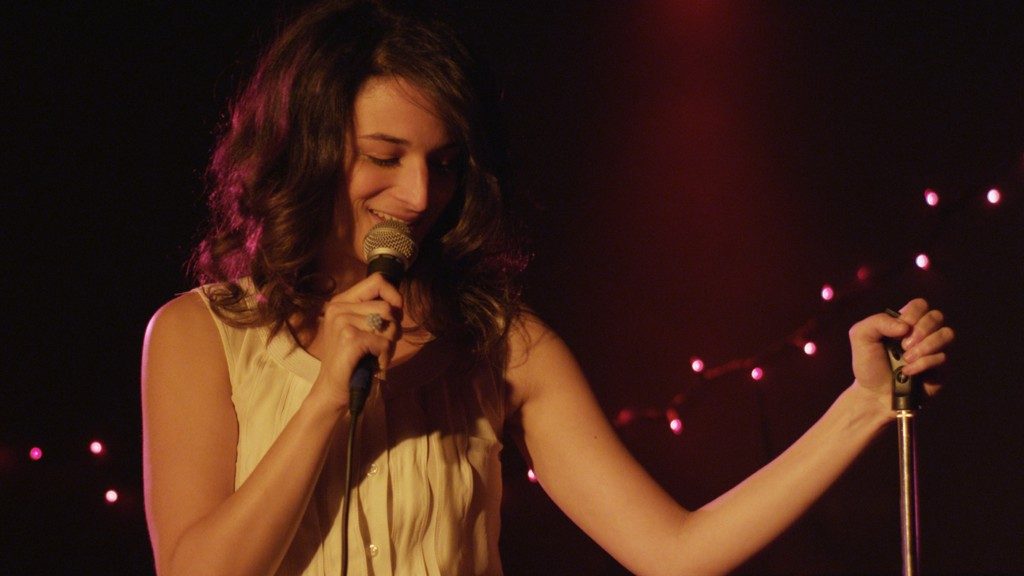Just a couple of days after it acquired Lynn Shelton’s Laggies, A24 (which has a good track record for releasing women directed films- last year they released Sally Potter and Sofia Coppola) has picked up Gillian Robespierre’s debut feature, the Jenny Slate-starring indie rom com Obvious Child. The deal is said to be in the low seven figures.
In an interview with Women and Hollywood, Robespierre described her film as follows:
Obvious Child is a comedy about what happens when Brooklyn comedian Donna Stern (Jenny Slate) gets dumped, fired and pregnant just in time for the worst/best Valentine’s Day of her life. That’s the elevator pitch. [Stand-up comedian] Donna is a naturally funny, intelligent woman in her late twenties who is slowly shedding the remaining traits of her youth. She is forever prodded by her parents to make better choices and act more like an “adult.” Donna’s forced to do just that when a one-night stand leads to a difficult decision that does and does not define the rest of her life. Though confident in her choice, Donna must gain the confidence to believe in her talent, herself, and the best in those around her, especially one surprisingly decent guy (Jake Lacy) who just might make this the worst/best Valentine’s Day a little bit better.
In the same interview, Robespierre also addressed the quick labeling of her movie as an “abortion comedy”:
I think the biggest misconception/critique people have already formed about Obvious Child, a movie they haven’t seen yet, is “How are you making a romcom about abortion?” My straightforward answer is, We didn’t. There are romantic and comedic moments in the film, but not specifically about the abortion. Donna Stern is a sincere and comedic person who is going through a difficult time in her life and I think there are ways to laugh even in those serious, hard-to-breathe moments. This is one person’s story and not an agenda-driven movie.
Obvious Child’s goal was to tell an honest story about what happens to a person who loses their confidence and the ability to trust other humans after a bad break-up. We also wanted to illuminate the emotional complexity of a choice that’s always wrought with conflict and to de-stigmatize it. And whatever their politics, we hope viewers will consider, debate, and share Donna’s story.







